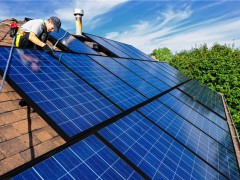? 當今時代,對石油需求峰值預測并沒有過時,因為石油需求仍然強勁,盡管奧密克戎引發了新恐慌
? 國際能源署署長比羅表示:需求動態比許多市場觀察人士此前預計的要強勁
? 石油需求前景似乎非常樂觀,甚至連美國頁巖油鉆探公司都開始提高產量
據1月17日今日油價報道,2020年,隨著疫情爆發,一個又一個國家出臺限制措施,許多能源行業觀察人士甚至提出,這是石油時代的終結。這些評論人士表示,需求已經見頂。他們說,從現在開始,這將是一個惡性循環,這些預測并不久遠。
疫情剛過去一年,經濟就重新開放、增長,對許多人來說,消耗更多原油也不足為奇。去年9月,彭博社報道稱,全球一些最大經濟體石油需求反彈至疫情前水平,甚至在此基礎上進一步增長。
如今,疫情已經過去兩年,盡管奧密克戎變種引發了新一輪恐慌,但石油需求仍保持強勁。分析人士預計,油價仍將走高,原因是產能有限、新產能投資不足以及需求強勁。
國際能源署(iea)本周對這種需求強勁表示了驚訝。國際能源署似乎已經假定,由于某種原因,石油需求增長將會放緩。這一假設可能與該機構自己的能源預測有關。該預測認為,風能和太陽能發電能力將大幅增長,電動汽車的采用也將大幅增加,而后者將直接影響石油需求。然而,它的假設被證明是錯誤的。
IEA總干事法提赫?比羅爾(Fatih Birol)本周表示,“需求動態強于許多市場觀察人士預期,這主要是由于對奧密克戎擔憂的預期有所緩和。”換句話說,國際能源署的這一聲明意味著,該機構預計會有更多國家采取封鎖措施,以防止病毒傳播。然而,這一次不太可能出現更嚴重的封鎖。即使是最富裕的經濟體也會發現很難應對另一次經濟關閉,所以在應對這次奧密克戎時比以往更加謹慎。
比羅爾表示,“我們看到包括尼日利亞和厄瓜多爾在內的一些主要產油國都出現了嚴重的供應中斷,這呼應了分析師的擔憂,即全球石油供需關系中的供應面與需求面一樣存在問題。在修復了兩條重要管道后,厄瓜多爾已經開始恢復生產。尼日利亞雖然處境艱難,但決心提高石油產量”。
這就是石油基本面的現狀,不過,未來可能會有所不同。一方面,投資不足問題正變得越來越嚴重。歐佩克和IEA都警告稱,世界需要發現更多新石油。IEA已將自己重塑為能源轉型的擁護者。
出現這種情況的唯一原因可能是,需求并未像所有能源轉型倡導者所希望的那樣迅速消失。然而,由于過渡壓力,大型石油公司正在限制其石油產量,這不僅意味著勘探投資減少導致新發現石油減少,還意味著一些最大石油生產商產量減少。這將使供應負擔更多地轉移到歐佩克+,他們的閑置產能正在減少,就像歐洲大型石油公司的產量一樣。
石油需求前景似乎非常樂觀,甚至連美國頁巖油公司都開始提高產量,盡管疫情導致他們重新安排了工作重點,將重點放在向股東返還現金,而放棄了產量增長。隨著2021年石油出口創下歷史新高,如果不抓住這個機會,為這個能源匱乏的世界提供更高比例的石油,那就有點奇怪了。
比羅爾表示,“石油和天然氣的消費必須減少,需求也必須減少。沒有其他選擇,但我想明確表示,需求下降并不意味著明天就會變成零”。
為確保朝著2050年凈零目標邁進,盡管一些更激進的環保組織呼吁徹底的轉型,但石油和天然氣生產不可能在一夜之間停止。即使是比羅爾認為實現凈零排放至關重要的《巴黎協定》,要完全履行這一減排也是個難題。當然,除非政府采取一系列禁令和命令,為公民指明正確方向。當然,有些國家和地區已經這么做了。
王佳晶 摘譯自 今日油價
原文如下:
Why The Bears Completely Missed The Mark On Oil Demand
Covid era peak oil demand predictions didn’t age well as oil demand is still going strong despite the fresh scare of the Omicron variant
IEA Chief Birol: Demand dynamics are stronger than many of the market observers had thought
The oil demand outlook appears to be so bullish that even U.S. shale drillers have begun boosting their production
In 2020, as the coronavirus locked down country after country, many energy industry observers and even participants floated the argument that this was the end of the oil era. Demand, these commentators said, had peaked. From now on, it will be a downward spiral for it, they said. These predictions did not age well.
Just a year into the pandemic, economies were reopening, growing, and unsurprisingly for many, consuming more crude oil. Last September, Bloomberg reported that some of the world's biggest economies had seen a rebound in oil demand to pre-pandemic levels and even further growth on top of these levels.
Now, two years into the pandemic and with hopes it could be the last one for infection waves, oil demand is still going strong despite the fresh scare of the Omicron variant. Analysts are predicting higher oil prices still, citing limited capacity, insufficient investment in new production, and the strength of demand.
The International Energy Agency this week expressed its surprise with this demand strength. The IEA, it seems, had assumed that for some reason or another, oil demand growth would slow down. Perhaps the assumption had something to do with the agency's own energy forecasts that see massive growth in wind and solar power generation capacity and a strong increase in EV adoption, with the latter directly affecting oil demand. Yet its assumption proved to be quite wrong.
"Demand dynamics are stronger than many of the market observers had thought, mainly due to the milder Omicron expectations," the IEA's chief, Fatih Birol, said this week. Translated, this statement means that the IEA expected more national lockdowns to prevent the spread of the new coronavirus variant. Yet more severe lockdowns were quite unlikely this time around—even the wealthiest economies would find it hard to cope with another shutdown of their economies, so they are approaching this Omicron wave more carefully than previous ones.
"We see some of the key producers including Nigeria and also Ecuador that have serious supply disruptions," Birol also said, echoing concern by analysts that the supply side of the global oil equation is as problematic as the demand side. Ecuador is already restoring production after it repaired two important pipelines,and Nigeria is struggling but determined to boost its oil production.
This is the present state of oil fundamentals. The future may look different. For one thing, the underinvestment problem is becoming increasingly grave. Both OPEC and the IEA—the latter which has rebranded itself as a champion of the energy transition—have warned that the world needs more new oil discoveries.
The only reason for this could be that demand is not dying as fast as hoped by all the champions of the energy transition. Yet Big Oil is curbing its oil output because of transition pressure, and this would mean not just fewer new discoveries because of lower investment in exploration but also lower output from some of the biggest producers out there. This would swing the burden of supply more to OPEC+ whose spare capacity is shrinking, just like European Big Oil's output.
The oil demand outlook appears to be so bullish that even U.S. shale drillers have begun boosting their production despite a pandemic-induced rearrangement of priorities that saw them focus on returning cash to shareholders and forego production growth. With oil exports last year hitting record highs, failing to take advantage of the opportunity to supply a higher portion of the oil an energy-hungry world needs would have been a little odd.
"The consumption of oil and gas has to diminish, demand has to decline," the IEA's Birol said earlier this month in comments on a Canada-focused report. "There is no way out. But I wanted to make clear that a declining demand doesn't mean tomorrow they will be zero."
Indeed, despite calls from some more radical environmentalist groups to do exactly that, oil and gas production cannot be stopped overnight to ensure a clear path towards the 2050 net-zero goals. But even the decline that the IEA's Birol correctly sees as essential for the achievement of the Paris Agreement goals might prove a tough nut to crack. Unless, of course, governments resort to a series of bans and mandates to point their citizens in the right direction. Come to think of it, some are already doing just that.
免責聲明:本網轉載自其它媒體的文章,目的在于弘揚石化精神,傳遞更多石化信息,并不代表本網贊同其觀點和對其真實性負責,在此我們謹向原作者和原媒體致以敬意。如果您認為本站文章侵犯了您的版權,請與我們聯系,我們將第一時間刪除。







